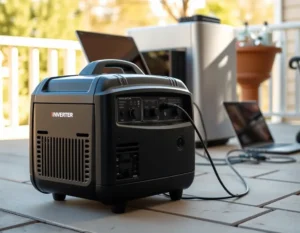
En el mundo moderno, donde la electricidad es fundamental para nuestras actividades diarias, las interrupciones eléctricas son un gran inconveniente, pueden afectar nuestra productividad y
In a world where climate uncertainty can disrupt even the most robust operations, preparedness is the beacon that guides continuity. In JRH Power Generator, we understand the vital importance of maintaining the constant flow of energy, even in the midst of the most challenging threats.
We invite you to explore our complete guide on how to prepare your generator to face the onslaught of hurricanes. From practical tips to backup strategies, we'll provide you with the key to keeping power in your hands, even in the most challenging of circumstances.
It's time to ensure your peace of mind and stay ahead in the midst of the storm!
Before you can properly prepare your generator to deal with a hurricane threat, it is essential to understand the different ways that these storms can impact your electrical supply.
Hurricanes are not a uniform phenomenon; They come in a variety of shapes and sizes, each with their own level of power and destructive range.
Hurricane Categorization: Hurricanes are classified into different categories according to the Saffir-Simpson scale. This scale goes from category 1 (the least intense) to category 5 (the most devastating). Each category has its own potential for wind, storm surge, and flooding.
understand the hurricane categories it is essential to assess the risk facing your generator.
Violent Winds: Winds are one of the most immediate and obvious threats of a hurricane. Wind gusts can bring down power lines and trees, causing widespread power outages. Knowing the estimated wind strength in your area will help you determine how strong your generator should be.
Floods and Tidal Waves: Hurricanes often bring torrential rains and flooding, which can affect underground electrical infrastructure and cause blackouts. In addition, storm surges can inundate coastal areas, further affecting electrical facilities.
Preparing your generator to deal with potential flooding is crucial.
Tropical storms: Even tropical storms, less intense than hurricanes, can cause considerable damage. The winds and rains associated with these storms can disrupt electrical power and require the use of backup generators.
By understanding each hurricane threat, you'll be better prepared to take specific steps to protect your generator and maintain power during and after a hurricane.
In the face of an imminent hurricane threat, preparing your generator is essential to ensure it is ready and operational in the event of a power outage. Here are some key steps you should take:
General inspection: Perform a thorough inspection of your generator. Make sure all parts are in good shape and working properly, from the engine to the fuel system to the electrical system.
Sufficient Fuel: Make sure you have enough fuel to run the generator for the estimated duration of the hurricane threat and its aftermath.
Strategic location: Place the generator in a safe, elevated location to prevent damage from flooding. Make sure it is well ventilated and at a safe distance from structures or flammable objects.
Electric connection: If your generator is not permanently connected, make sure you have the necessary cables and connections ready to quickly connect the generator to your home or business electrical system.
Protection from Elements: Cover the generator with a waterproof cover or store it in a sheltered location to prevent damage from rain or debris.
Regular maintenance and testing of your generator are crucial to ensure its reliable operation during a hurricane threat. Here are some important steps to take:
Maintenance program: Establish a regular maintenance schedule for your generator. This includes oil changes, air and fuel filter replacements, and spark plug checks.
Periodic Tests: Periodically test your generator to make sure it starts and runs properly. This will give you the confidence that it will be ready when you need it.
Blackout Drills: Organize blackout drills where you turn off the power to your home or business and start the generator. This will help you identify any issues and familiarize yourself with the process.
Fuel storage: If you store fuel, make sure it is in a safe and suitable place, away from sources of heat or flames.
Documentation: Keeps a detailed record of tests and maintenance performed on the generator. This will allow you to keep track of it and ensure it stays in top condition.
By following these preparation and maintenance steps, your generator will be able to function effectively during a hurricane threat and give you peace of mind that you will have power in the event of a power outage.
Peace of mind in uncertain times is invaluable. If you've ever experienced a hurricane threat without the security of a constant power supply, you know how critical it is to have a emergency generator reliable
If you haven't invested in an emergency generator yet, now is the time to seriously consider this option. Don't wait for the next hurricane threat to take action. Our experts They are ready to advise you.
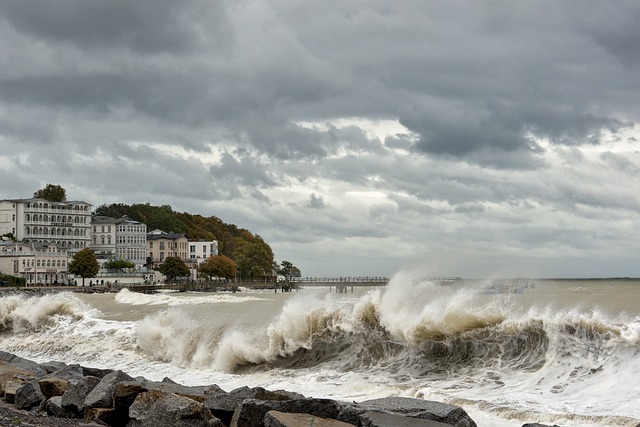
In the midst of a hurricane threat, it is crucial to have adequate supplies and effective backup to keep your generator running at its best. Here are some essential recommendations:
Additional Fuel: Make sure you have enough fuel in storage to keep the generator running for a long period of time. Keep fuel in suitable containers and in a safe place.
Filters and Spare Parts: Keep extra air and fuel filters on hand, as well as other replacement parts that may be needed for emergency maintenance.
Cables and Connections: Store extra extension cords and connections in case you need to move the generator or connect it to multiple devices.
Flashlights and Batteries: Make sure you have extra flashlights and batteries for nighttime lighting in case of extended power outages.
Nonperishable food: Keep a stock of non-perishable food and drinking water for yourself and your loved ones during an emergency.
First Aid Kits: Have a complete and up-to-date first aid kit in case of injuries or medical emergencies.
Safety is a priority during a hurricane threat and when operating a generator. Follow these tips to ensure everyone's safety:
Safe Location: Place the generator in a well-ventilated area and away from enclosed areas, such as garages. Never place it inside your home or business.
Avoid Impromptu Connections: Do not connect the generator to the electrical sockets in your home through improvised cables. Use proper cables and connections to avoid electrical hazards.
Safe Fuel: Store fuel in suitable containers and in a safe place, away from sources of heat and open flames.
Fire Prevention: Keep the generator away from flammable materials and make sure it is on a stable, level surface.
Protection from Elements: Protect the generator from rain and other weather elements by using waterproof covers or locating it in a sheltered area.
Correct disconnection: Before performing any maintenance on the generator, unplug it and allow it to cool down.
Ventilation: Use the generator in a well-ventilated area to prevent the buildup of toxic gases.
By following these tips, you'll be prepared to safely and effectively face a hurricane threat, ensuring your generator runs smoothly and protecting everyone's integrity.
At JRH Power Generator, we understand that preparing for a hurricane threat and the safe use of generators can be complex issues. If you have questions or need specific advice on how to prepare your generator for a hurricane threat, do not hesitate to contact us.
Our team of electric generator experts is here to provide you with the guidance you need.

En el mundo moderno, donde la electricidad es fundamental para nuestras actividades diarias, las interrupciones eléctricas son un gran inconveniente, pueden afectar nuestra productividad y
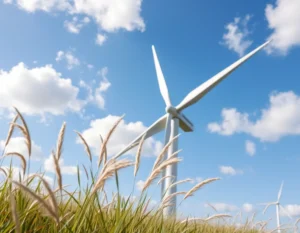
Las turbinas eólicas se han convertido en el emblema de la energía renovable, ofreciendo una solución sostenible y limpia frente a los combustibles fósiles. Sin
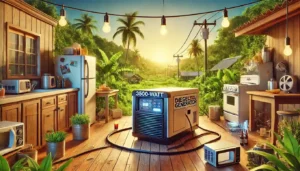
Cuando se trata de mantener la energía en situaciones de emergencia, durante viajes de campamento o en eventos al aire libre, un generador de 3500
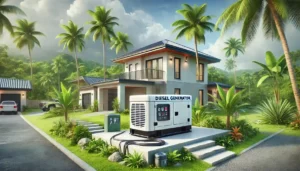
En tiempos de cortes de energía o desastres naturales, saber cómo usar un generador para alimentar una casa puede marcar la diferencia entre estar preparado
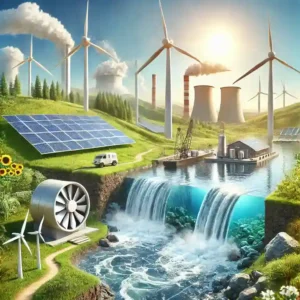
La búsqueda de energías alternativas se ha convertido en un pilar fundamental en la discusión sobre sostenibilidad y el futuro energético del planeta. Pero, ¿cuáles
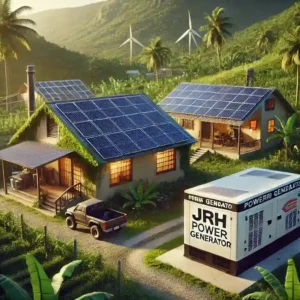
En un mundo donde la demanda de energía eléctrica sigue en aumento, las interrupciones de servicio y el costo creciente de la electricidad han impulsado